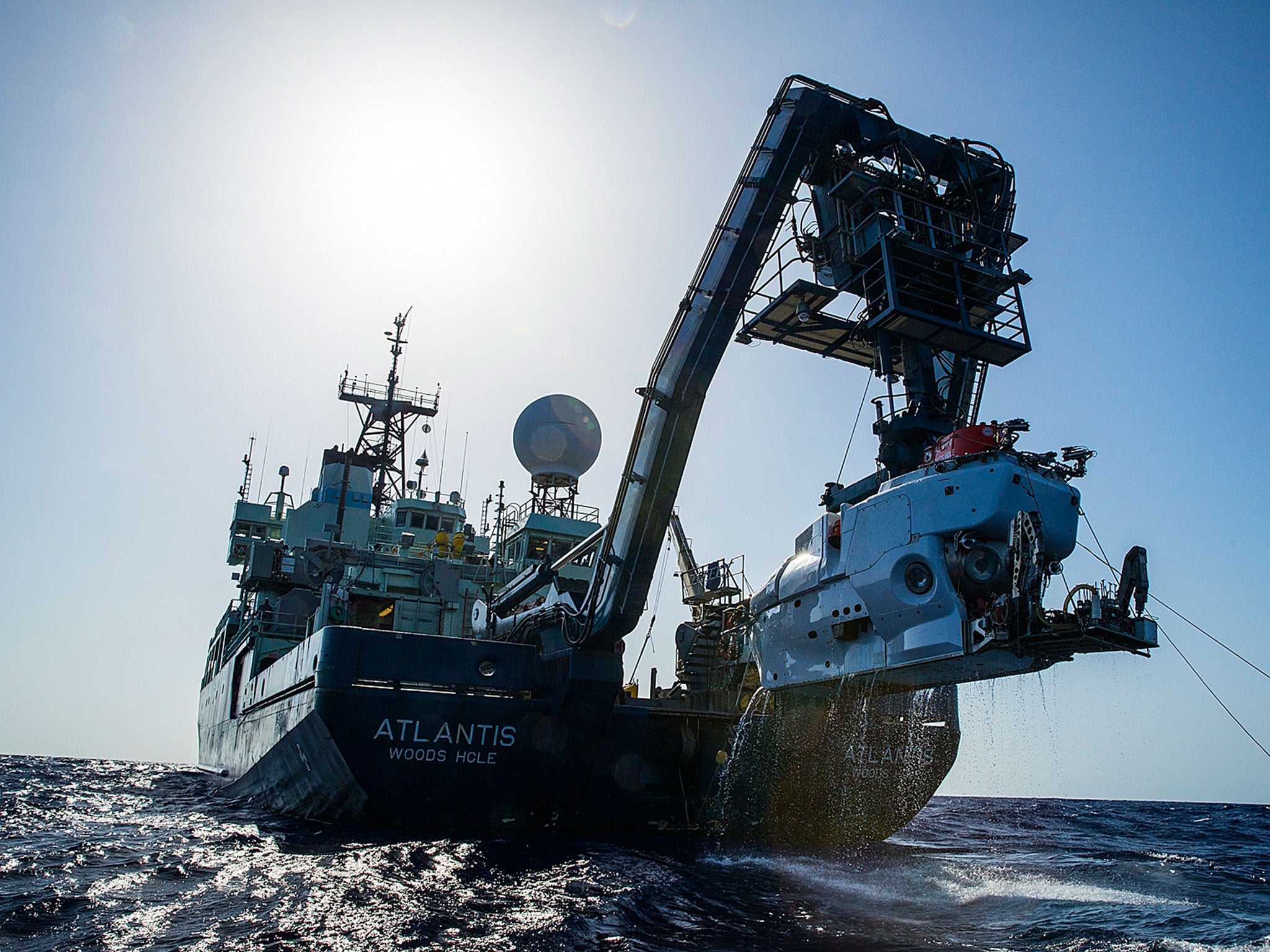Early 19th century Shipwreck discovered off the coast North Carolina in the 'The Graveyard of the Atlantic'
'The site is undisturbed and well preserved'

The Marine scientists didn’t set out to find a shipwreck. But when they deployed their underwater equipment off the North Carolina coast, there it was, lying nearly a mile beneath the surface: a ship carrying an iron chain, red bricks and glass bottles.
Those artifacts suggest the ship could date to the Revolutionary War or the early 19th century. The team of Duke University, North Carolina State University and the University of Oregon scientists announced their discovery Friday.
Scientists found the wreck using sonar. The National Oceanic and Atmospheric Administration will now try to identify the mysterious ship, including how old it is and its country of origin.
“Lying more than a mile down in near-freezing temperatures, the site is undisturbed and well preserved,” Bruce Terrell, chief archaeologist of NOAA’s Marine Heritage Program, said in a statement. “Careful archaeological study in the future could definitely tell us more.”
The wreck was found near the Gulf Stream, which was used as a popular trade route to ports in North America, the Caribbean and South America. “Violent storms sent down large numbers of vessels off the Carolina coasts, but few have been located because of the difficulties of depth and working in an offshore environment,” Marine Heritage Program director James Delgado said in a statement.
The Associated Press reported: From the surface, older wooden vessels may show up on sonar only as pixelated dark spots — or not at all — which explains why such finds are rare despite modern efforts to map the sea floor, he said.
“A largely wooden ship, largely now consumed by marine organisms, it’s not going to show up,” [Delgado] said. “It’s only when you fly closer or when you have eyes on the bottom that you find these wrecks.”
The deep sea discovery included a pile of wooden ship timbers, a pottery jig, a metal compass and other navigational instruments.
This particular ship, found in a region dubbed the “The Graveyard of the Atlantic,” lies farther out and deeper than most discoveries, Delgado told the News and Observer, adding he thinks the ship was more likely used for trading than for war.
“That could tell us far more because in many ways those hundreds of voyages, thousands of voyages, really wrote the history of America in a very powerful way at the same time we were advancing and expanding west,” Delgado told the News and Observer.
The scientists were actually on an expedition to recover equipment lost during a 2012 research trip. They boarded the Woods Hole Oceanographic Institution research ship Atlantis on Sunday and deployed an unnamed underwater vehicle, Sentry, and a manned submarine, Alvin.
“I have led four previous expeditions to this site, each aided by submersible research technology to explore the sea floor — including a 2012 expedition where we used Sentry to saturate adjacent areas with sonar and photo images,” expedition leader Cindy Van Dover of Duke University said in a statement. “It’s ironic to think we were exploring within 100 meters of the wreck site without an inkling it was there.”
Copyright: Washington Post
Subscribe to Independent Premium to bookmark this article
Want to bookmark your favourite articles and stories to read or reference later? Start your Independent Premium subscription today.

Join our commenting forum
Join thought-provoking conversations, follow other Independent readers and see their replies